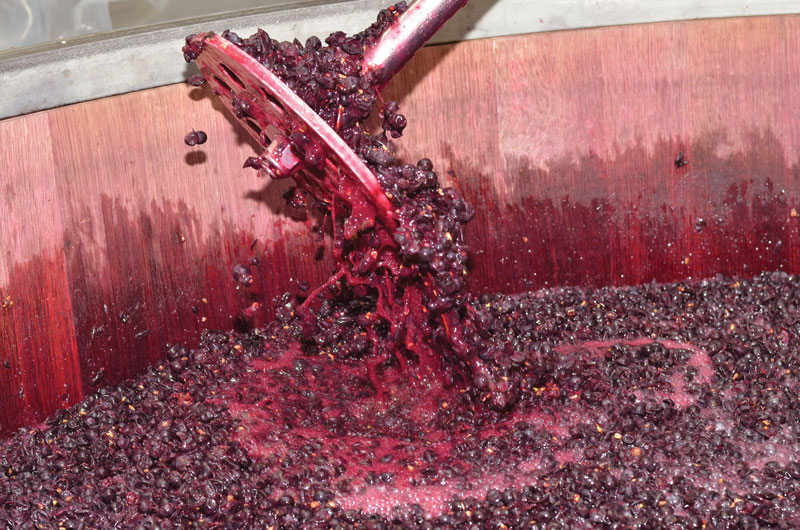Egg whites are an ancient, traditional and natural additive and are sometimes used to pull excessive tannins out of wine in a gentle treatment process known as “fining.” Practiced for centuries all over the winemaking world, a solution of egg whites, water and salt are stirred into the wine and allowed to settle out, pulling harsh or excess tannins with it. The wine is then racked off of the sediment, leaving the phenolic substances, and the egg white protein behind.
When I was a student at UC-Davis one of my microbiology professors always used to tell us, “No known human pathogen can survive in wine.” She used this to point to the fact that wine has been used for thousands of years in medicine and first aid for its antiseptic and antibacterial properties. Wine’s naturally high acid and high alcohol provides an environment hostile to many kinds of bad bugs that can harm people (human pathogens). Everyone from ancient Romans to medieval knights were aware that swabbing a wound with wine (though it probably stung) was a better way to wash and heal injuries than using sometimes bacteria-laden water.
That being said, with today’s headlines regularly screaming about this or that food recall, it’s natural to worry about salmonella poisoning any time eggs are used, whether for egg white fining or for hollandaise sauce. Hollandaise (along with unpasteurized Caesar salad dressing, or soft boiled eggs) I’d personally avoid; anytime you eat eggs that haven’t been cooked until the yolk and white are both firm, you open yourself to the possibility of salmonella poisoning. If the egg has salmonella bacteria (and not all eggs do) there is a chance some of the cells will not be killed by the heat.
In 2003, J.R. Just and M.A Daes published an article entitled “Antimicrobial Effects of Wine on Escherichia coli O157:H7 and Salmonella typhimuirium in a Model Stomach System” in The Journal of Food Science. In this article, in addition to trying to mimic what happens to pathogens in a model of our digestive tract (with and sans wine) they discovered that both E. coli and Salmonella bacteria were inactivated when introduced into wine itself within 60 minutes. This speaks to your egg white fining question. Basically, stir some egg whites into your wine, let it settle (I always budget two weeks to let gravity take the needed sedimentation effect) and you’re (pardon the pun) fine. Acid and alcohol are the active agents that kill bacteria and other “human pathogens” so I can’t speak to beer, cider or very low-acid or low-alcohol or non-alcoholic wine. You could also just skirt the issue altogether by buying pasteurized bulk egg whites, sometimes found in natural food stores and used by protein-supplement and fat-free omelet enthusiasts.


